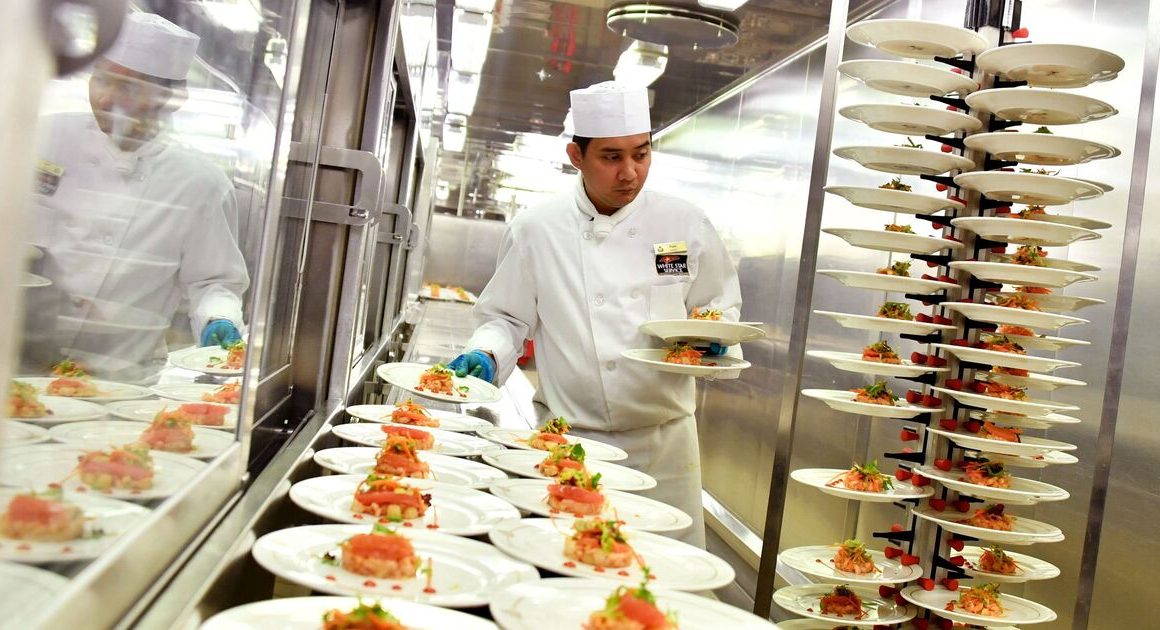So many home appliances are found in properties nowadays, and homeowners might be taken aback by the sheer number of devices they have plugged in around their house that don’t need to be when they stop to think about it.
Then there are appliances like fridges and freezers that should never be switched off. They’re a constant drain on electricity, and aside from ensuring you have energy-efficient models, there’s little you can do to cut down their power consumption except by opening them as seldom as possible.
For those jetting off on holiday for the rest of summer or simply trying to save as much cash as possible on their energy bills, Ian Palmer-Smith, an appliance expert at Domestic and General, has identified the “worst appliances” that households should “never leave on standby” – and he’s answered some frequently asked questions.
He pointed out that leaving certain appliances plugged in is likely to consume some electricity, which is the last thing anyone needs during a cost-of-living crisis.
But that’s not all, as more often than not, these items also need to be unplugged for maximum energy-saving benefits.
Ian said: “Some believe that just switching them off is enough, but there are numerous electrical products that continue to use power when left plugged in – these are often referred to as ‘vampire devices’.”
The appliance guru shared that the “most common vampire devices” found in homes include washing machines, dishwashers, tumble dryers, TVs and microwaves.
He further explained that computer monitors, printers and coffee machines are also among the “most energy-sucking appliances”.
Many households might be wondering why these particular appliances are the most expensive to leave on standby.
Ian explained: “Appliances that need to heat water use a lot of energy which is why dishwashers and washing machines score so highly on energy consumption.
“They use more energy than others on standby as they need to be ready to heat water instantly, on demand.”
These appliances should be completely unplugged, or at least switched off at the plug, because merely turning them off via remote or on their display will still consume electricity.
The expert clarified: “Any appliance that’s still switched on or that stays plugged into a live socket, is using an electric current.
“Even in sleep or standby modes, some items continue to use energy for updates, connecting to remote servers, and recording data. The only way to ensure you’re not using any energy is to turn it off at the plug or pull it out.”
However, there are a few household appliances that should “never be turned off”, despite their high electricity usage.
Ian cautioned: “Whilst fridge freezers contribute around 12 percent to a household energy bill, you shouldn’t turn off or unplug this before a holiday as this will cause the fridge to defrost and also potentially result in a smelly kitchen.”
For those who have appliances fixed, the expert has suggested an alternative way to turn them off. Ian said: “Standby savers, or energy-saving plugs, work with remote controls. The device blocks power from moving through the socket to the appliance. So, they’re handy if your sockets are in hard-to-reach areas.”
If households want to make sure all their devices are switched off not on standby and not using vampire power then turning them off at the plug “is the best bet”, according to the energy experts at Ovo Energy.
They said: “Plugs with unconnected chargers will use a little power, but the amount is very small. If there’s nothing plugged into a plug socket, then it won’t use any electricity, even if it’s switched on.”












